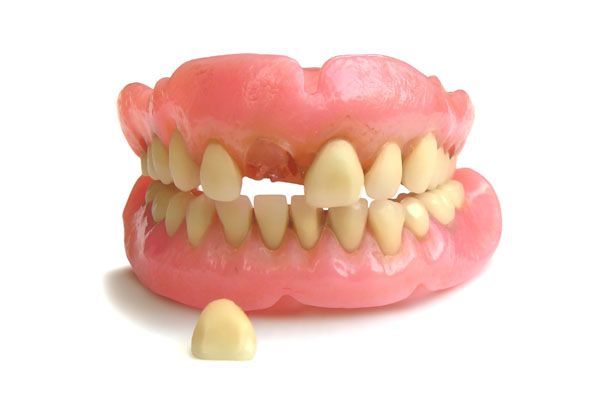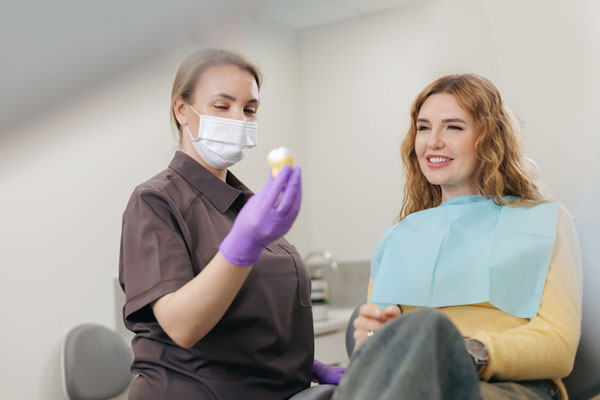How Fluoride Is Used in Preventive Dentistry

Fluoride is an all-around defense for your teeth, gums, and whole mouth. This is why many towns add the mineral to drinking water as a matter of public health. Dentists also use fluoride treatments to protect their patients’ teeth from tooth decay.
Read on for a brief walkthrough of how fluoride protects the teeth at a chemical level. The article also goes over how dentists can use fluoride treatment during routine dental visits.
How fluoride protects the teeth
Fluoride forms a protective film that covers tooth enamel. This film keeps the enamel healthy in the following ways:
- Fluoride pulls calcium from saliva and bonds it onto the enamel, which strengthens the teeth
- It prevents calcium and phosphorous from leeching off the enamel
- It improves the chemical composition of the enamel, which makes the tooth surface more resistant to acid
- It kills off harmful bacteria in the mouth, which goes a long way toward preventing tooth decay
These are a few ways that fluoride prevents cavities and tooth decay. Dentists will advise their patients to take in small amounts of fluoride through their water. People who live in areas with low fluoride levels in water should seek out food sources or supplements that contain the mineral.
This is doubly important for children whose permanent teeth have yet to erupt. They need enough fluoride to ensure that their permanent teeth emerge healthy and strong. These are a few of the reasons that fluoride remains a fixture in preventative dentistry. Here is how a dentist uses fluoride to benefit their patients.
Routine dental visits and preventative dentistry
Checkups enable dentists to keep tabs on their patients' oral health. For children, routine dental checks involve charting the growth and development of the entire oral cavity. These exams can detect dental issues in their earliest stages. Catching an oral health problem before it worsens means the dentist may only perform corrective treatments that are minor and non-intrusive.
The second stage of a routine dental visit is professional teeth cleaning to remove plaque buildup. This procedure removes the staging grounds that bacteria use to infect the teeth and gums.
Dentists complete a teeth cleaning by applying a coat of fluoride on all the teeth and sometimes, dental sealant on the molars. These two treatments form a protective barrier that lasts long after the patient leaves the dentist’s office.
It is worth mentioning that the fluoride treatment does not eliminate the need for fluoride toothpaste. Patients with a history of dental issues may also be recommended to use a fluoride rinse every once in a while.
Frequently asked questions about fluoride
Here are the answers to frequently asked inquiries about fluoride and the battle against tooth decay.
What is fluoride?
Fluoride is a mineral found in many places, including the teeth. It is also added to many public water supplies to help prevent tooth decay. When fluoride is combined with the minerals in the teeth, it becomes harder for acids to attack and damage teeth enamel. Fluoride can even help reverse the demineralization stage of tooth decay.
How does it work?
Fluoride makes teeth more impervious to acid attacks from plaque, bacteria, and sugars in the mouth. It also promotes remineralization, which helps repair early signs of tooth decay.
Is it safe?
Yes, fluoride is safe when used as directed. In fact, it is one of the most effective ways to prevent tooth decay. The Centers for Disease Control and Prevention has named water fluoridation one of the top 10 public health achievements of the 20th century.
How much fluoride do I need?
The amount of fluoride that a patient needs depends on their age and whether they have a history of tooth decay. Children up to age three should use a rice-sized amount of fluoride toothpaste when brushing, while grown-ups should use a pea-sized amount of toothpaste twice daily. If a patient is not sure if they are getting enough fluoride, they should talk to their dentist or healthcare provider.
What are the side effects?
The most common side effect of using too much fluoride is dental fluorosis. This condition causes white spots or streaks to form on the teeth. Dental fluorosis is generally only a cosmetic issue and does not affect the tooth's health. In rare cases, excessive fluoride intake can lead to bone problems.
You can benefit from a proactive approach to your dental health
Get in touch to schedule a routine dental checkup with our dentist. The checkup will cover an extensive dental exam, professional teeth cleaning, and fluoride treatment.
Request an appointment here: https://thechesterfielddentist.com or call Chesterfield Dentist at (804) 412-0867 for an appointment in our Chester office.
Check out what others are saying about our dental services on Yelp: Preventative Dental Care in Chester, VA.
Recent Posts
Along with having strong teeth, gum health is essential to maintain good oral wellness. Your gums can also affect your overall health. Too many people neglect to care for their gums. If you put off this responsibility, you could face severe consequences. As you understand how essential it is to keep your gums healthy, you…
Professional dental cleanings are integral for keeping your mouth healthy. They remove plaque and tartar (hardened plaque) that regular brushing and flossing cannot, leaving your teeth and gums refreshed. Maintaining healthy habits that keep your smile bright and strong is essential to make the most of a dental cleaning. Caring for your teeth properly after…
A healthy and clean mouth requires more than brushing and flossing daily. Professional deep teeth cleanings can help prevent severe oral health issues, particularly beneficial for those with moderate to severe gum disease or plaque buildup. Deep teeth cleanings address issues that regular cleanings may miss or not be able to fully address, promoting healthier…
A dental exam is performed to determine the condition of the patient’s oral health. The goal is to detect any concerns as early as possible so that they do not worsen or cause other health issues. This article discusses the types of oral issues your dentist may look for during a dental examination and cleaning…


